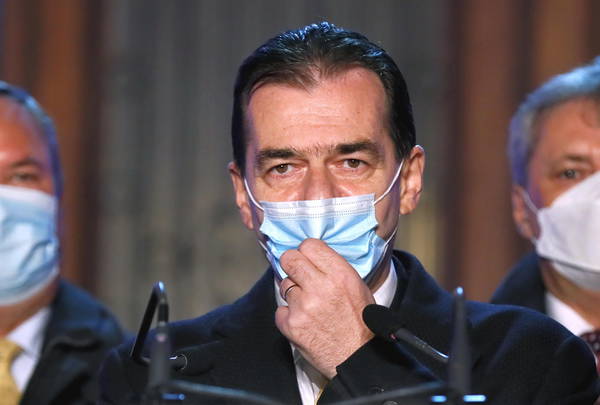(ANSA-AFP) - BUCHAREST, DEC 7 - Romania's opposition Social
Democrats (PSD) gained a better than expected result in
parliamentary elections marred by record low turnout but are
unlikely to be able to return to government, partial results
released late Sunday showed. With 50 percent of votes counted,
the PSD was on 30 percent, while the governing liberal PNL party
was on 25 percent. However, the PSD will lack allies in the new
parliament and President Klaus Iohannis -- long a PSD foe -- has
said he wouldn't allow the party to return to government during
his current term, which ends in 2024. More than 18 million
Romanians were eligible to take part in the vote, carried out
with the now familiar virus safety measures of social
distancing, mask-wearing and hand disinfectant. But broad
disillusion with Romania's political class along with a harsh
second wave of the coronavirus pandemic depressed turnout, which
stood at around 33 percent, a record low for a parliamentary
election. After an earlier exit poll showed the PSD putting in
an unexpectedly strong performance, PSD leader Marcel Ciolacu
said: "I expect Orban's resignation, it's what Romanians have
asked for with their votes." However, if the trends in the
initial results are confirmed the PNL should still be on course
to form a government in alliance with the smaller, recently
formed USR-Plus party, which has so far won 15 percent. It can
also ally with the small UDMR party representing the country's
Hungarian minority, which is on course to win six percent and
has said it wants to co-operate with the liberals. PNL Prime
Minster Ludovic Orban noted that the result could be affected by
votes cast by Romanians abroad, which will mostly be counted on
Monday. Those living outside Romania are younger than average
and thought to favour USR-Plus and its promise to clean up
Romania's political scene. And they were more enthusiastic
participants, with some 260,000 expatriate Romanians casting
ballots, double the 2016 figure. Romania is one of the EU's
poorest countries, and four million of its citizens have left in
recent years to seek better lives elsewhere, in particular in
western EU member states. In a region where populists and
nationalists have recently gained ground, Orban had won some
support by pledging to modernise Romania and keep it on a
"pro-European" path. (ANSA-AFP).
© Copyright ANSA - All rights reserved














